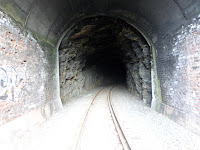 |
| Coco Bongo Beach |
My first day in Cancun involved a lot of jet lag as I had lost 13 hours flying from Indonesia, the airport losing my bag and therefore struggling with Spanish in an attempt to retrieve it (mighty successfully I should add) and a birthday party complete with pinata, tequilla and tacos. It is a pretty good way to sum up Cancun really; vibrant, confusing and you´ll be super tired by the end of your time here if you´ve done it right.
The ´Zona Hotelera´or would once have been known as ´The Beach´but now there are so many sky high hotels lining the coast that this is no longer an appropriate name. Getting on to the beach if you aren´t staying in one of these buildings involves finding a rare gap in the nightclub strip on to the beach, or sneaking through a hotel lobby. The beach itself is incredible- I can really see why it is popular: it is hard to believe in just how blue the water is. As well as this, it seems impossible to find a stretch that doesn't play loud club music from the bars along the sand. The place is famous as a Spring Break destination for American teenagers, but in Cancun it seems to be Spring Break all year round.
The natural beauty of the beach and the city of
Cancun itself seem to be a kind of contradiction to each other. The very young city is also, in my
opinion, very ugly. I accidentally found myself deep in downtown after missing my
stop on the bus. People automatically
assumed I was Mexican, because tourists never stray this far, which made things
difficult. I think I said ‘no hablas español’ more times than I ever will again in my life along with ‘donde esta Centro?’. Luckily, people are pretty friendly here and I did manage to make it
back to the hostel with minimal problems, but it was still an uncomfortable experience.
 |
| Cooling off after interviews... |






























